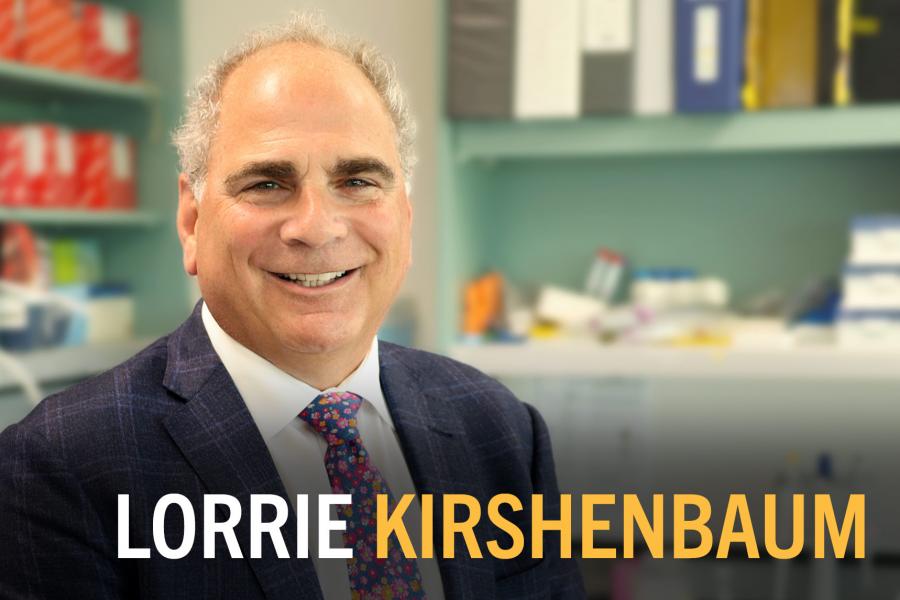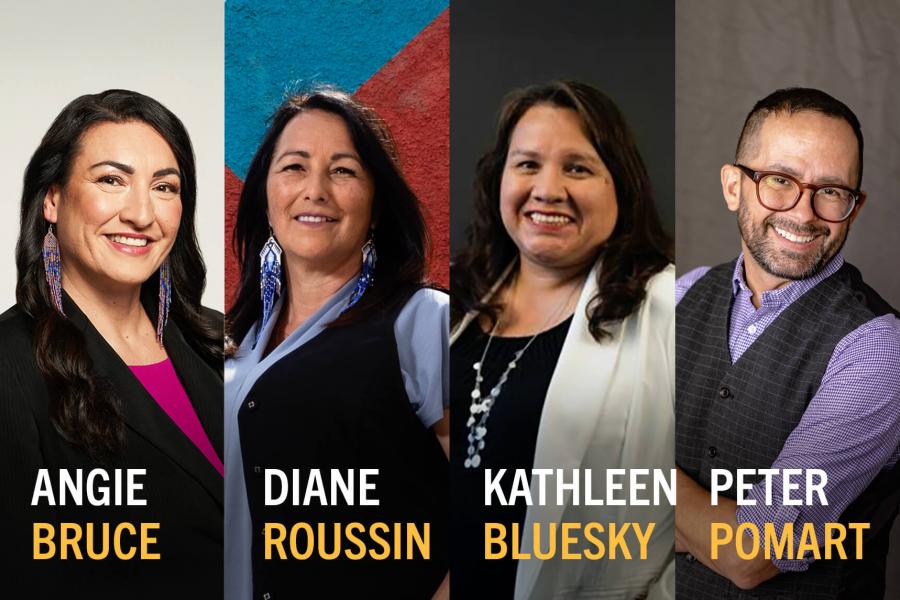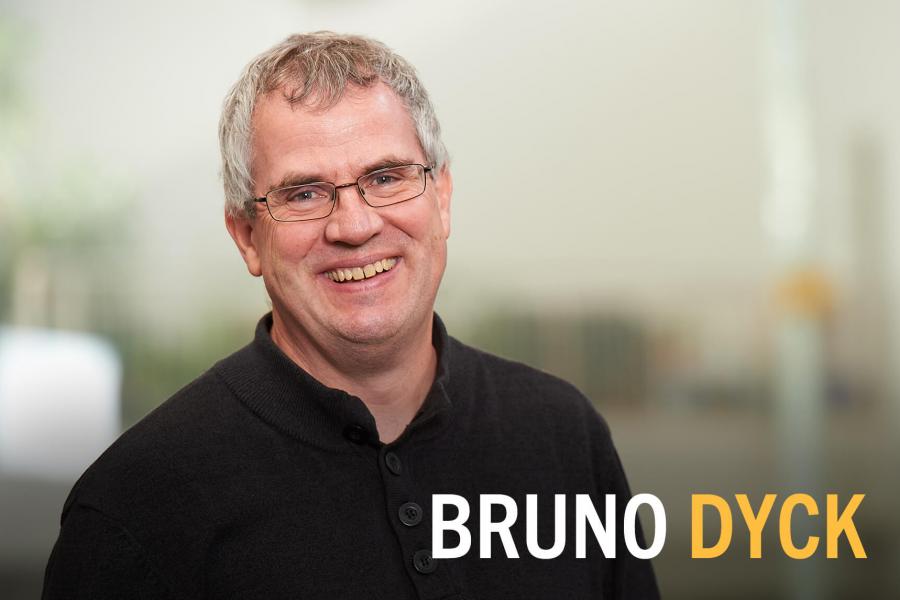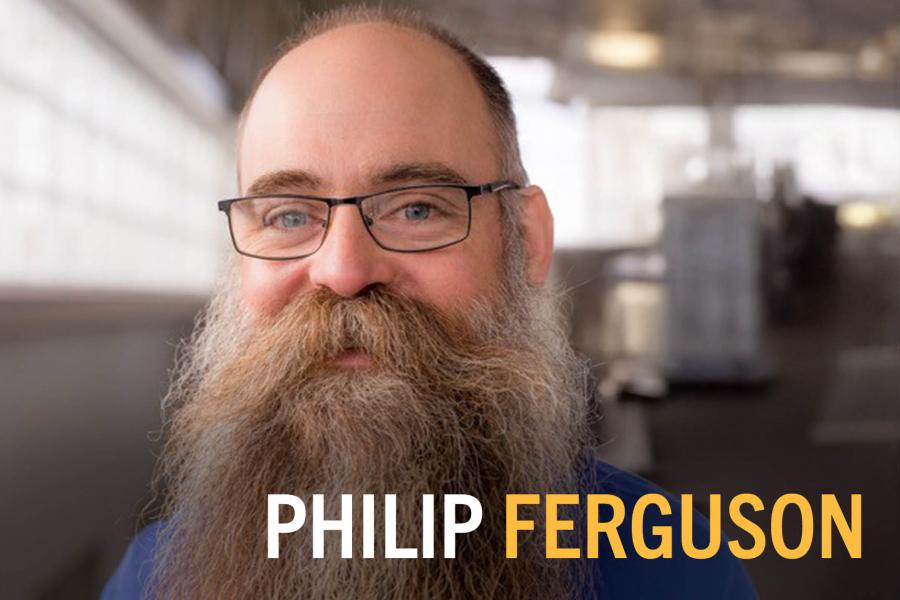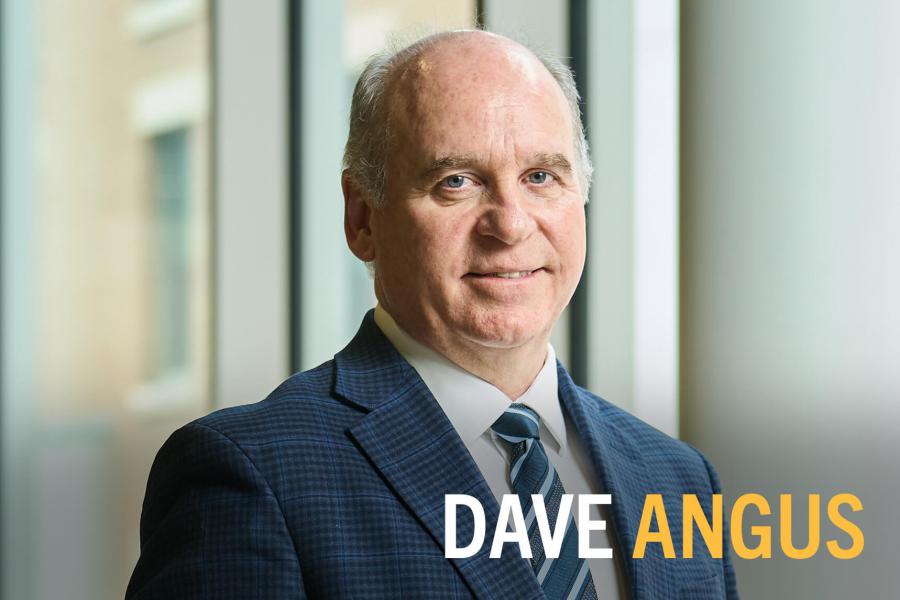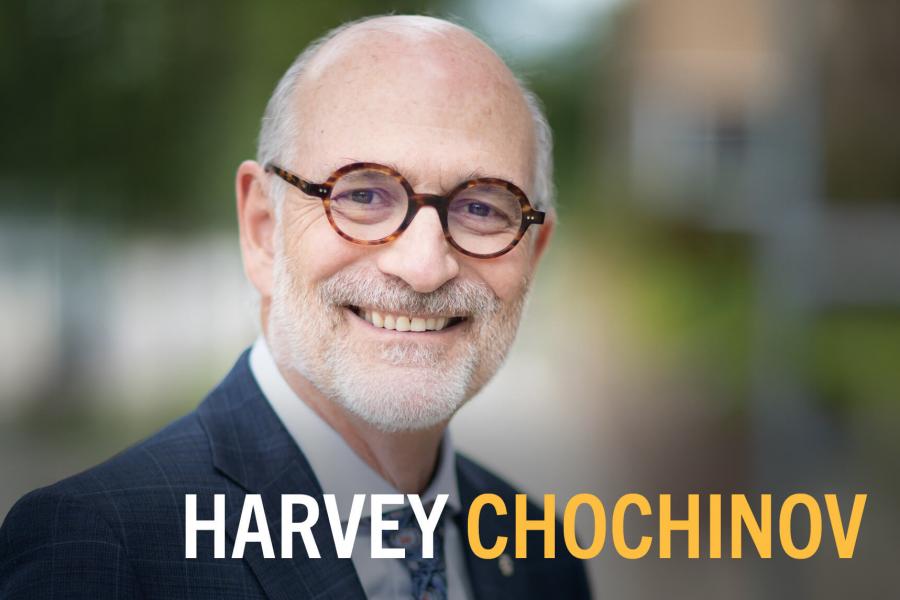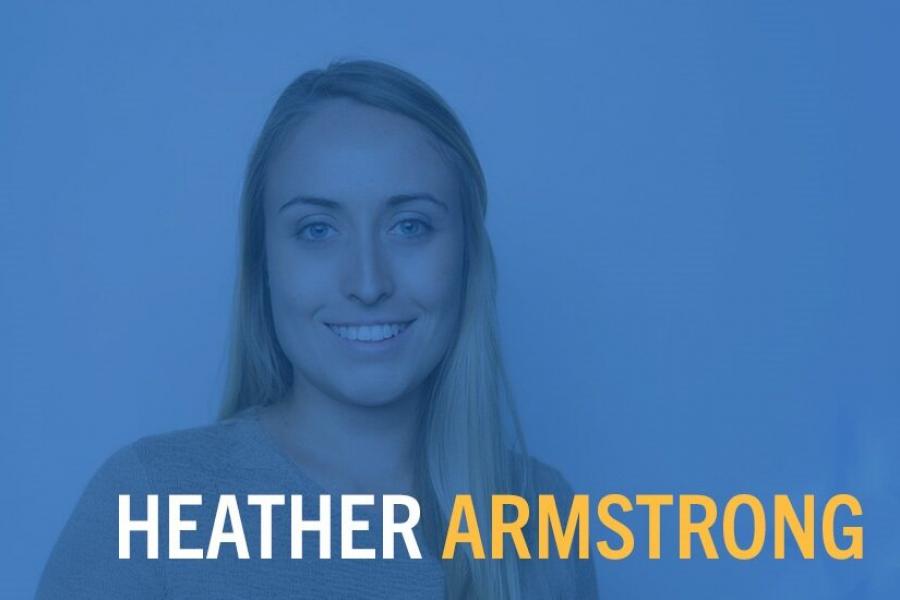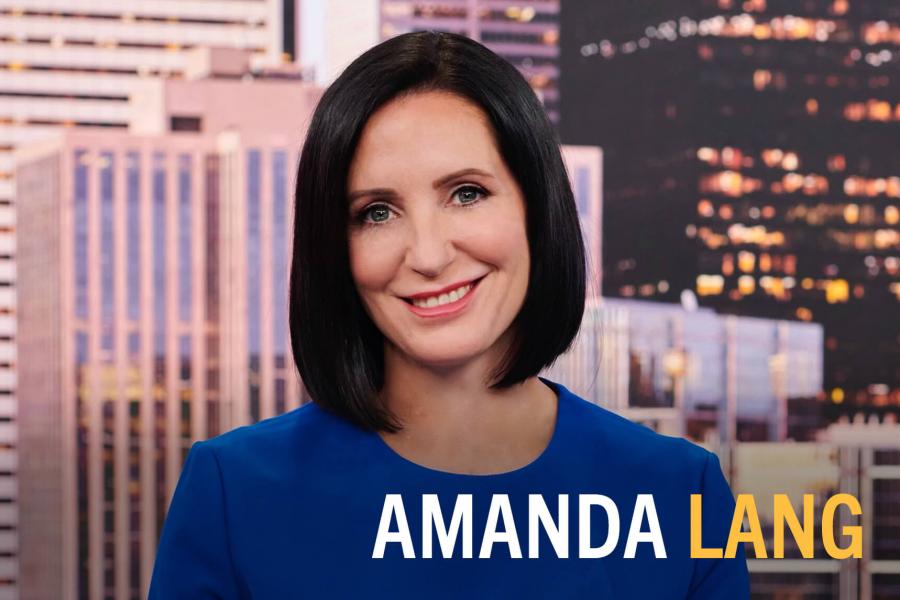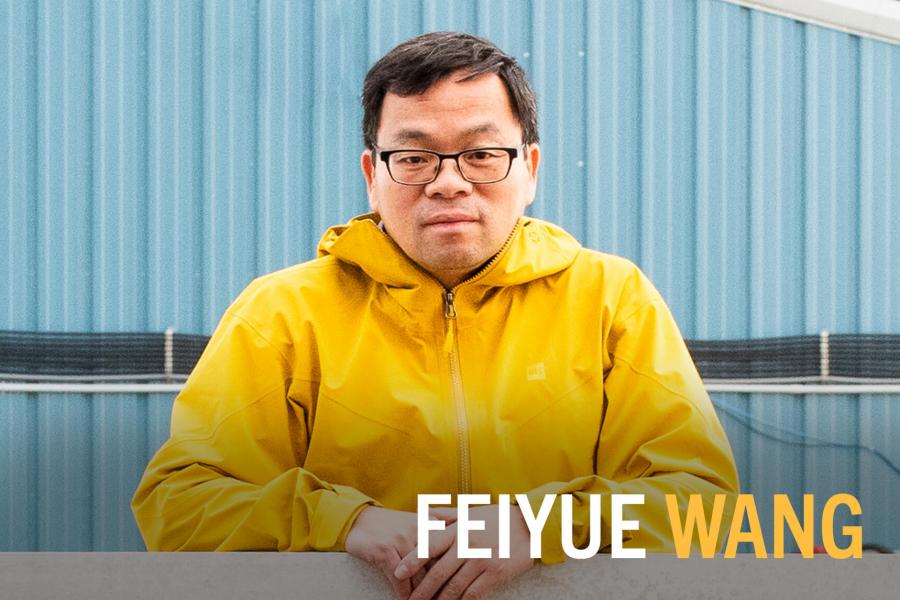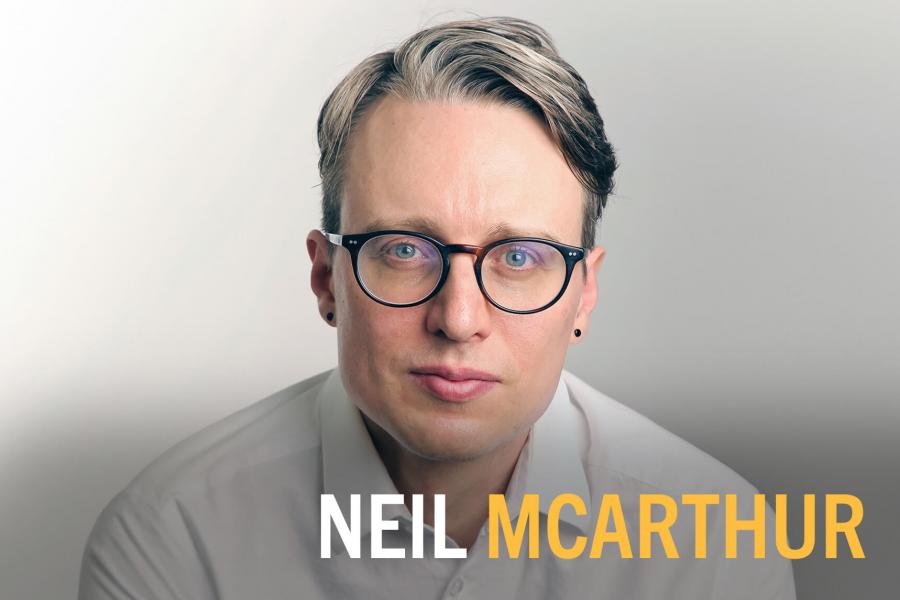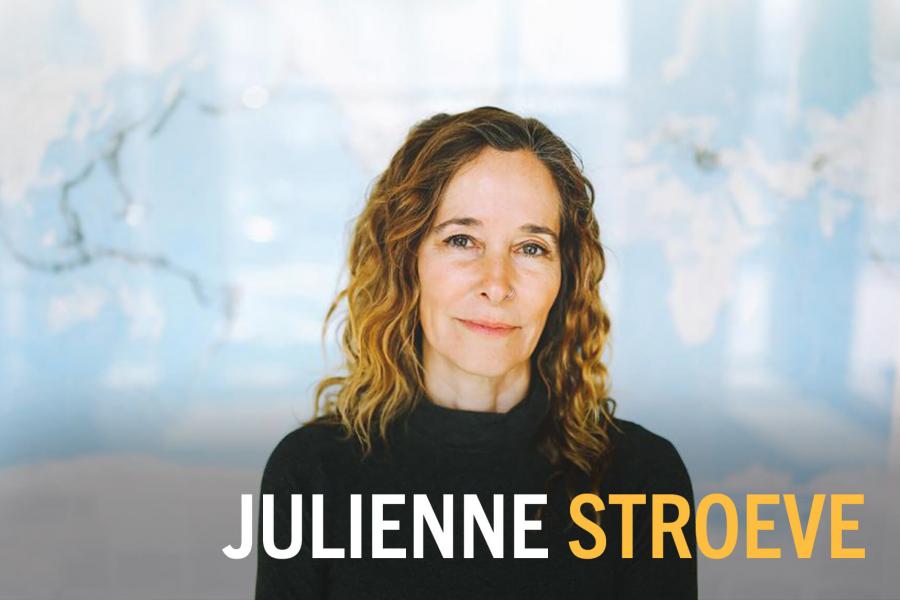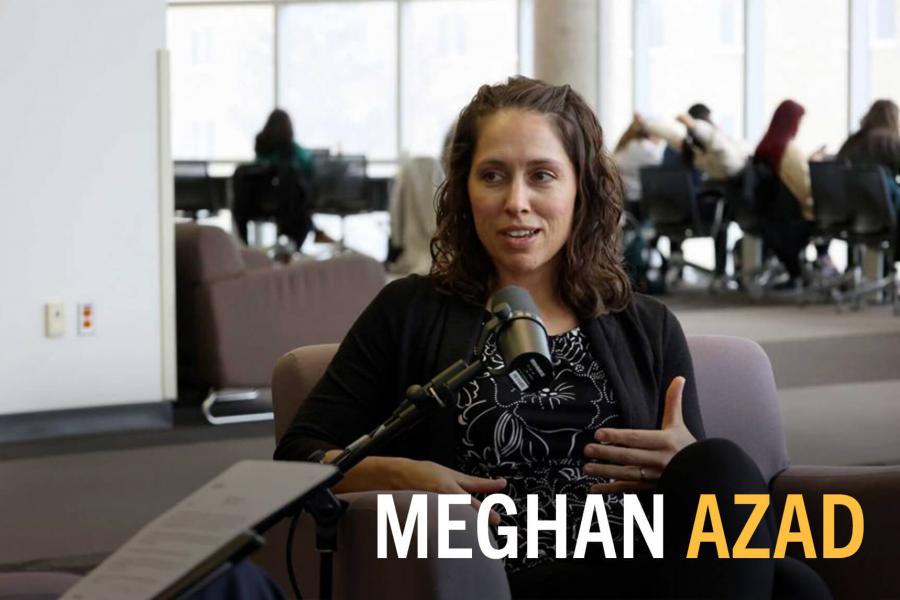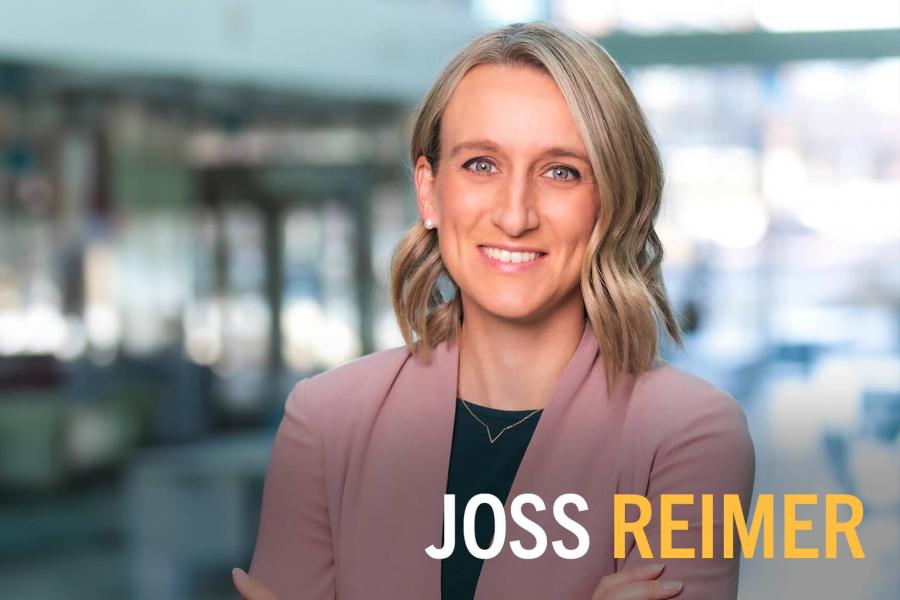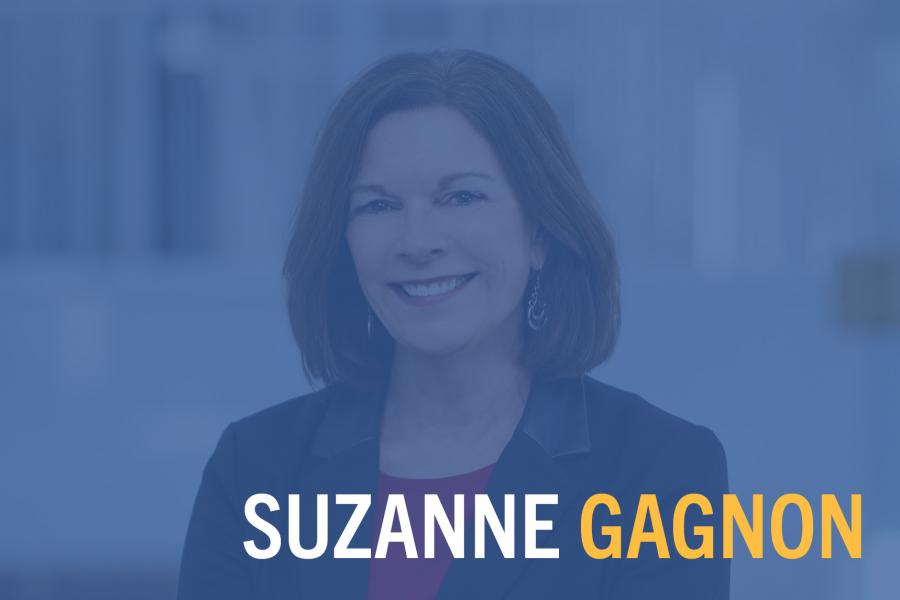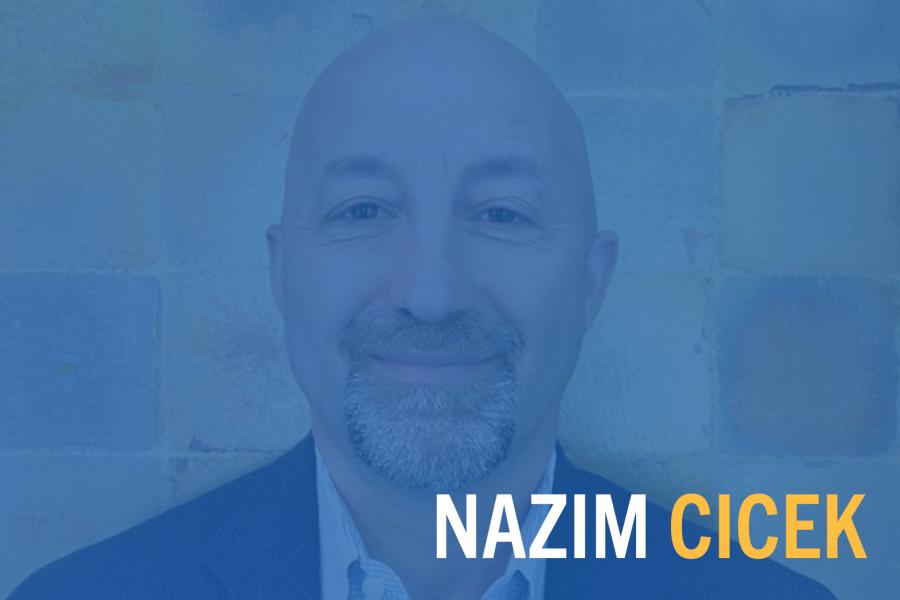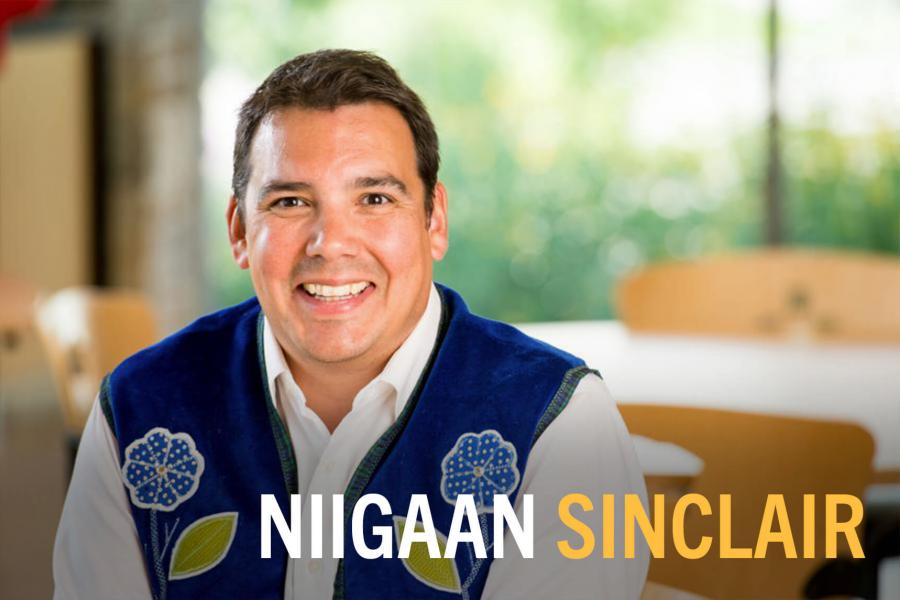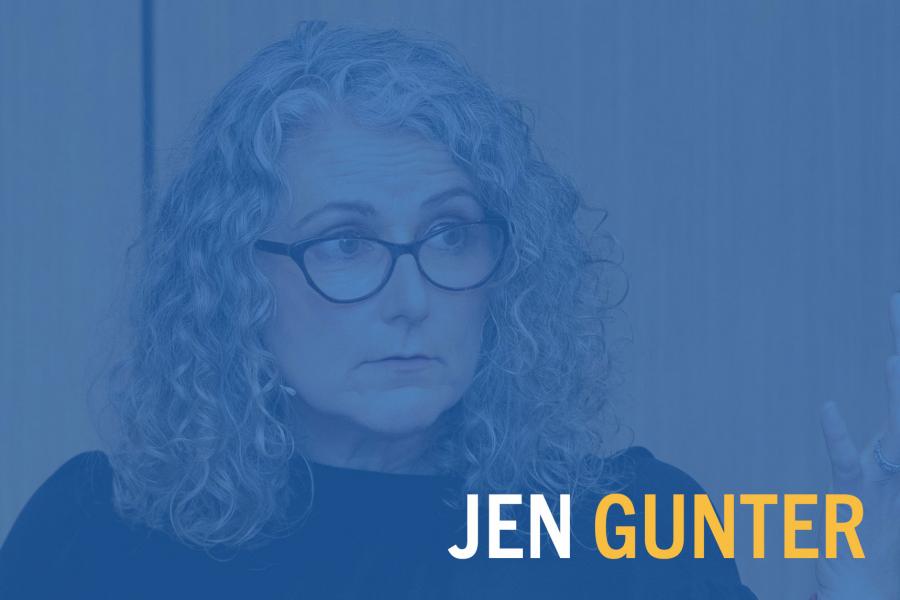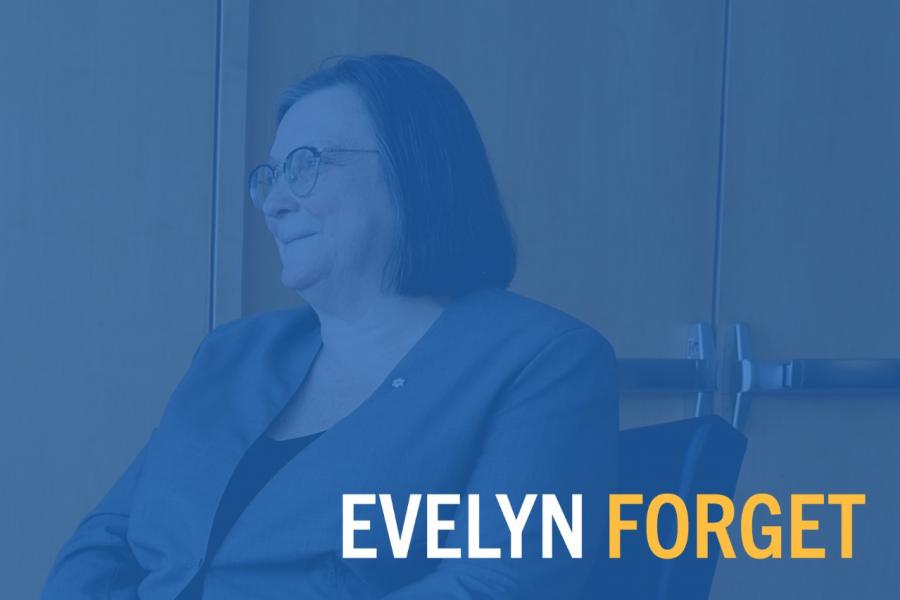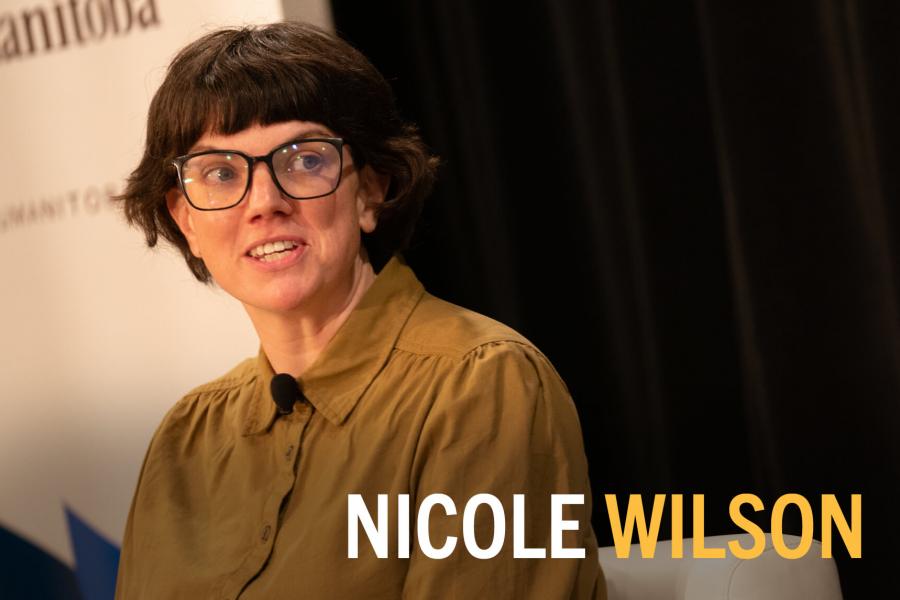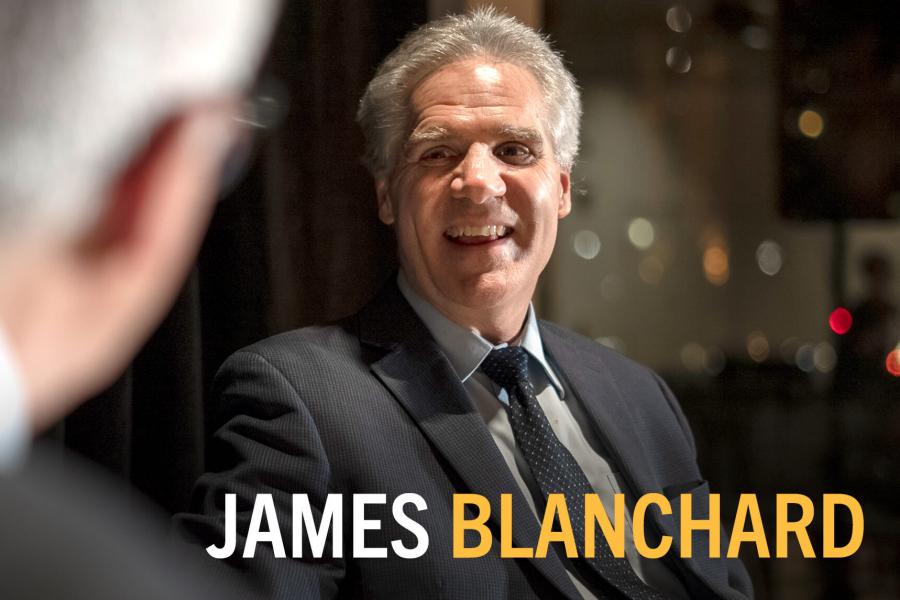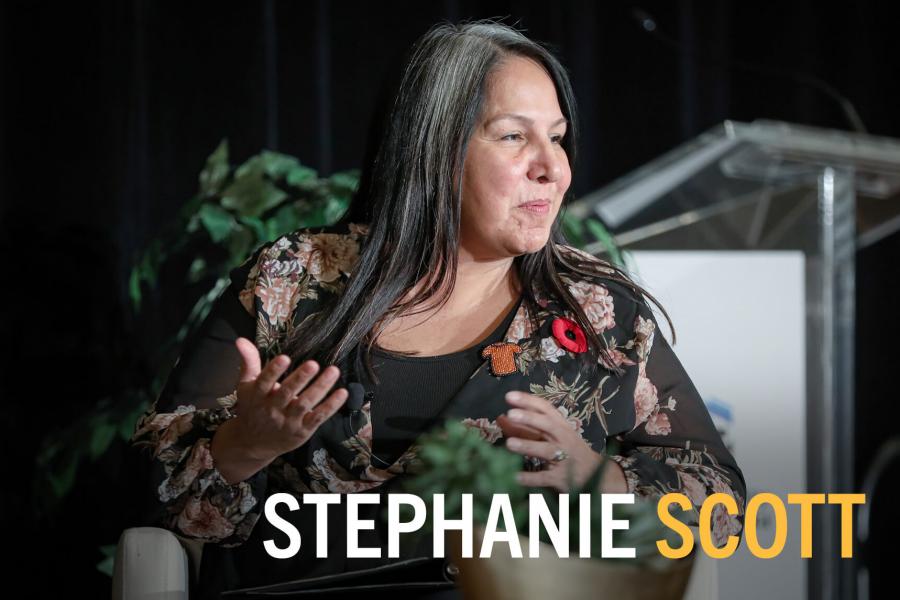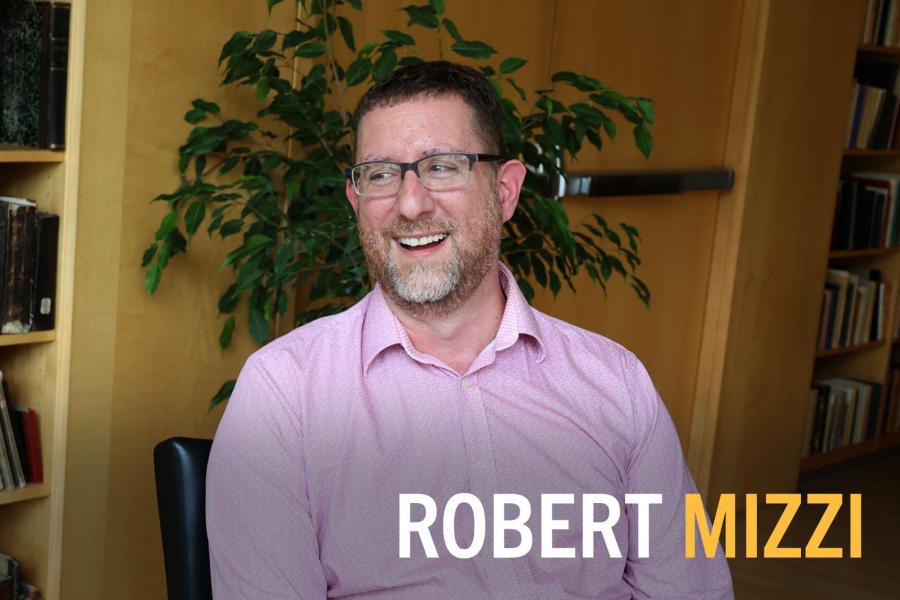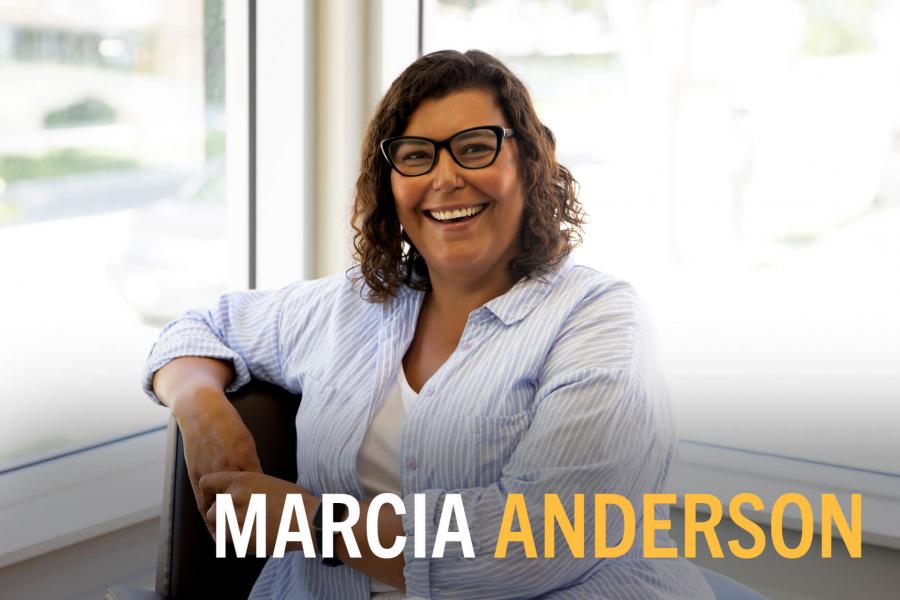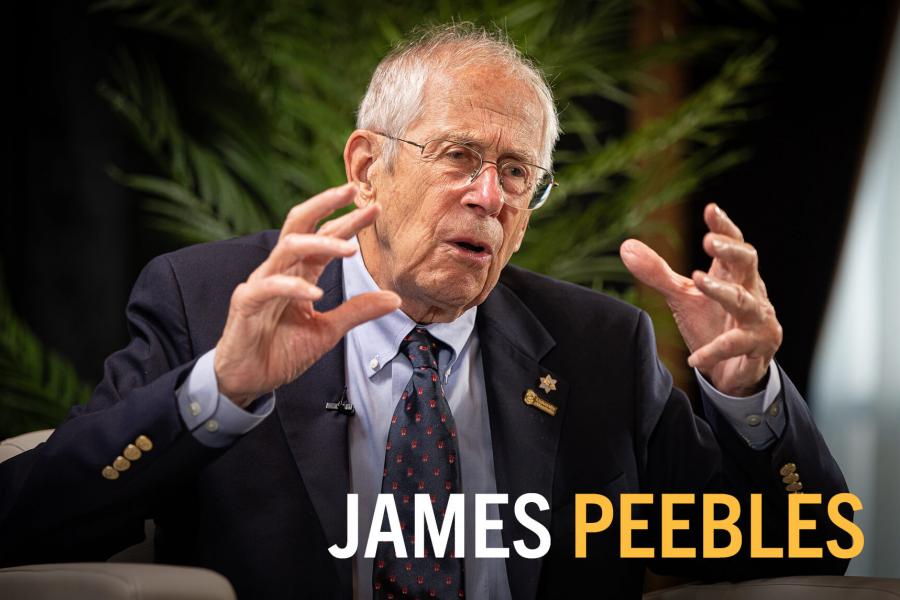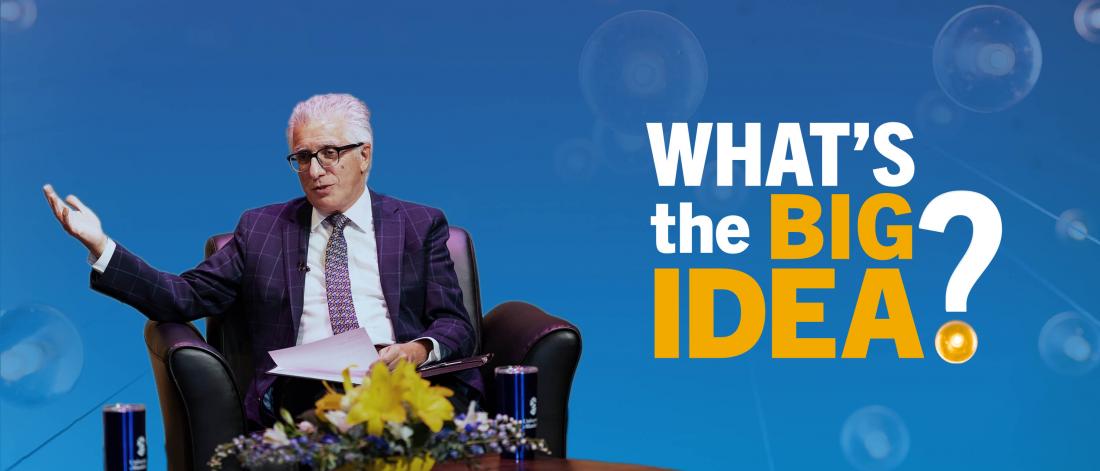
Latest episode
More about this episode
In this episode, President Michael Benarroch sits down with Dr. Lorrie Kirshenbaum to discuss how women’s and men’s hearts fail in different ways and how research being led at UM is helping improve diagnostic tools and treatment. Also highlighted are the importance of holistic approaches to women's heart health and the impact of local research initiatives in Manitoba.
About Dr. Lorrie Kirshenbaum:
Director of Research Development, Max Rady College of Medicine, Rady Faculty of Health Sciences, University of Manitoba
Director, Institute of Cardiovascular Sciences, St. Boniface Hospital Albrechtsen Research Centre
Principal Investigator, Cardiac Gene Biology, Institute of Cardiovascular Sciences, St. Boniface Hospital Albrechtsen Research Centre
Professor, Department of Physiology & Pathophysiology, and Pharmacology & Therapeutics, Max Rady College of Medicine, University of Manitoba
Former Canada Research Chair in Molecular Cardiology, University of Manitoba
Links and resources
University of Manitoba: Discover programs and opportunities
Alumni Relations: Stay connected with UM
Previous episodes
More about this episode
What are the challenges and the opportunities in creating a just and inclusive economic future? Hosted by Angie Bruce, Vice President (Indigenous) at the University of Manitoba, this episode of "What's the Big Idea?" explores the theme of economic reconciliation. Featured are Indigenous leaders and experts, Diane Roussin, a member of Scownan First Nation and project director of the Winnipeg Boldness Project, Kathleen BlueSky, a Cree Ikwe from Nisichiwasik Cree Nation and CEO of Treaty One Development Corporation, and Dr. Peter Pomart, a member of Mathias Cologne First Nation, an Asper School of Business lecturer and the former director of Indigenous Business Education Partners. Their public conversation considers the impact of racist policies like the Indian Act, the complexity of building Canadian sovereignty without infringing on Indigenous rights, the Carney government’s Bill C-5 or Building Canada Act and the relationship-building that is fundamental to successful economic reconciliation.
Host and panelists:
About Angie Bruce:
Red River Métis from St. Laurent, Manitoba.
Vice-President (Indigenous) of University of Manitoba, since February 2024.
MBA from UM’s Asper School of Business and a PhD from Nipissing University.
Former Assistant Deputy Minister of Natural Resources Canada's Nókwewashk sector.
Former Deputy Minister in Manitoba's Indigenous and Northern Relations and Municipal Relations departments.
Grew the Indigenous Natural Resource Program to $100 million.
Led the development of an Indigenous Research Ethics policy.
Led the highest number of Treaty Land Entitlement land transfers in Manitoba's history
Has held senior positions with the Legacy of Hope Foundation and the Aboriginal Healing Foundation.
About Diane Roussin:
Anishinaabe and member of the Skownan First Nation.
Passionate advocate for pimadaziwin (the good life) for all families and children.
Holds Bachelor of Arts and Bachelor of Social Work degrees.
Project Director of the Winnipeg Boldness Project, seeking to empower the Point Douglas community and create large-scale, systemic change for children and families living there.
Former Executive Director of the Ma Mawi Wi Chi Itata Centre.
Former Co-Director of Community Education Development Association.
Former Coordinator of The Winnipeg Foundation’s Centennial Neighbourhood Project.
Received the 2018 Governor General’s Award for Outstanding Indigenous Leadership.
Kathleen BlueSky:
A Cree and Anishinaabe Ikwe from Nisichawayasihk Cree Nation and Minegoziibe Anishinabe First Nation.
CEO of Treaty One Development Corporation, leading a major economic development project at Naawi-Oodena, a Treaty One Joint Reserve lands located in Winnipeg, MB.
MBA from Asper School of Business.
Founder of Seven Feathers Consulting
Former CEO of Nisichawayasihk Cree Nation.
Serves as the Vice-Chairperson of the $300M First Nation Market Housing Fund
Co-founded Wiijii'idiwag Ikwewag, securing Manitoba's first Social Impact Bond in 2019.
About Peter Pomart:
A member of Mathias Colomb First Nation - and a second-generation residential school survivor - Pomart is dedicated to advancing reconciliation between Indigenous and non-Indigenous peoples in Canada.
Lecturer at the I.H. Asper School of Business
Completing his doctoral studies in Business Administration.
His primary research aims to provide an Indigenous-centered perspective on how industry actors may better align their engagement practices with Article 32 of the United Nations Declaration on the Rights of Indigenous Peoples.
Links and resources
National Indigenous Economic Development Board: Naawi-Oodena
University of Manitoba: Discover programs and opportunities
Alumni Relations: Stay connected with UM
Music
Adrenaline Rush by Will Bonness, Associate Professor, Desautels Faculty of Music.
Read more about UM events and research
More about this episode
In this episode Bruno Dick, the Norman Frohlich Professor in Business Sustainability at the Asper School of Business, discusses the concept of Social and Ecological Thought Management (SET) and its implications for reimagining the purpose of business. In conversation with UM President Michael Bennaroch, Dyck explores how businesses can prioritize social and ecological well-being over profit maximization and welcomes the role the Chiu Center for Business Serving Community will play in promoting these ideas.
About Bruno Dyck
- Has been teaching in the Asper School of Business since 1990.
- Developed two undergraduate courses: Corporate, Social, and Environmental Responsibility, and the mandatory course, Sustainable Business.
- Two‐time recipient of the Asper School’s Associates Achievement Award for Teaching.
- Recipient of UM’s student‐chosen Certificate of Teaching Excellence
- Recipient of the Significant Contribution to Excellence in Teaching award.
- Recipient of the Dr. & Mrs. H.H. Saunderson Award for Excellence in Teaching award.
- Recipient of the 2023 Faculty Sustainability Award from UM’s Office of Sustainability.
- Received the Francisco de Vitoria University’s Expanded Reason Award for Teaching.
- Received the Book of the Year Award from the International Humanistic Management Association, for the textbook Management: Financial, Social, and Ecological Well-Being.
- Facilitated development of a series of videos by a team of UM MBA Indigenous students, allowing business instructors, worldwide to incorporate Indigenous content into courses.
Resources
More about this episode
In this episode, Philip Fergusson, an Associate Professor of Mechanical Engineering, President of the Canadian Aeronautics and Space Institute, and Director of the University of Manitoba’s STARlab, joins President Benarroch to discuss his big idea. From co-developing satellites with Arctic communities to designing drone airships for northern connectivity, we explore how responsible innovation, reconciliation, and a focus on local needs can shape a better future for space exploration.
About Philip Fergusson
- Associate Professor of Mechanical Engineering in the Price Faculty of Engineering at the University of Manitoba.
- Magellan Aerospace Industrial Research Chair in Satellite Technology.
- President of the Canadian Aeronautics and Space Institute.
- Director of the University of Manitoba’s STARlab.
- Studied at the Massachusetts Institute of Technology (MIT), where his PhD focused on astronaut movement during long-duration spaceflight missions.
- His work at STARlab includes building satellites launched from the International Space Station to study asteroids.
- Committed to reconciliation through innovation, advancing space technologies to serve northern, Indigenous, and remote communities, his work directly addresses digital inequity and supports self-determination.
- As a university-based researcher, he is positioned to lead a critical, evidence-informed conversation about sustainable materials and better international regulation for space.
Resources
More about this episode
In this timely episode, Dave Angus, President of Johnston Group, former head of the Winnipeg Chamber of Commerce and UM's incoming Chancellor, joins President Benarroch to discuss the big ideas we need now. From smarter regulation to bolder partnerships between business and post-secondary institutions, we explore how risk-taking, research, and rethinking old assumptions could help Canada meet this moment—and thrive beyond it.
About Dave Angus
- Member of the Order of Manitoba
- Named Canada’s top Chamber of Commerce Executive in 2012.
- Through his involvement with the United Way, Angus rallies local businesses in furthering their adoption of the Truth and Reconciliation Calls to Action, specifically Call to Action #92, which focuses on youth employment.
- Chair of the Friends of the Canadian Museum for Human Rights
- Past-chair and sitting member of the Joint Public Advisory Committee of the Commission for Environmental Cooperation;
- Co-chair of the Board of the World Trade Centre Winnipeg;
- Co-chair of the Winnipeg Poverty Reduction Council;
- Board member of the Manitoba Museum;
- Board member of Winnipeg’s Downtown Council;
- Canadian representative on the Board of Directors of the American Chamber of Commerce Executives;
- Co-chair of the Council of International Trade;
- Member of the City of Winnipeg’s Red Tape Commission;
- Member of the Mayor’s Trade Council;
- Board Chair of the Prairie Theatre Exchange;
- Board member of the YM/YWCA.
Resources
More about this episode
Just as there is a family physician designation in Canada, Dr. Aaron Jattan argues that there should be one for rural doctors, recognizing the extra training and skills needed in this role.
Dr. Peter Nickerson believes we need a distributed education model to train learners across the province. With Winnipeg exceeding its training capacity, rural communities who want physicians need to invest in training them locally.
Expanding training programs is a step in the right direction, but long-term solutions to multi-faceted problems require strategic planning, policy changes, and investment in retention efforts. Tune in to hear how Manitoba is working to address these challenges—and what more can be done.
About Dr. Aaron Jattan [Medical Resident/17]:
- Assistant Professor and Associate Program Director at the Max Rady College of Medicine, Department of Family Medicine, University of Manitoba
- Chief Medical Officer (acting), Winnipeg Regional Health Authority
Chairs and sits on national committees with the College of Family Physicians of Canada (CFPC) - Family physician and hospitalist working primarily out of St. Boniface Hospital
- Completed his medical school at the University of Ottawa and his residency at the University of Manitoba in the Brandon stream
- Completed his master’s in medical education through the University of Dundee
- Actively engaged in research involving clinical feedback and curricular innovation
About Dr. Peter Nickerson [BSc(Med)/86, MD/86]:
- Dean of the Rady Faculty of Health Sciences and dean of the Max Rady College of Medicine at UM
- Transplant nephrologist at the Health Sciences Centre Winnipeg
Medical consultant to the Transplant Immunology Laboratory at Shared Health - 2020 Lifetime Achievement Award, Canadian Society of Transplantation
- 2020 Rose Payne Distinguished Scientist Award, American Society of Histocompatibility and Immunogenetics
- 2018 Medal for Research Excellence, Kidney Foundation of Canada
- 2016 Paul I. Terasaki Clinical Science Award, American Society of Histocompatibility and Immunogenetics
- 2016 Clinical Science Established Investigator Award, American Society of Transplantation
- 2016 Scholastic Award, Doctors Manitoba
- 2012 Fellow Canadian Academy of Health Sciences, Canadian Academy of Health Sciences
- 2012 Dr. John B. Dossetor Research Award, Kidney Foundation of Canada
Resources
More about this episode
Dr. Chochinov pioneered “dignity therapy” and now he shares his bigger idea on how dignity-centered health care can transform our experiences of end-of-life care and our views on medical assistance in dying (MAID), personhood, family, and much more.
About Dr. Harvey Chochinov
- Canada Research Chair in Palliative Care and Distinguished Professor of Psychiatry at the University of Manitoba
- Senior Scientist at the CancerCare Manitoba Research Institute
- Officer of the Order of Canada, member of the Canadian Medical Hall of Fame, and recipient of the 2024 Distinguished Alumni Award for Academic Innovation from the University of Manitoba
- Co-founder of the Virtual Hospice, the world’s largest repository of information and support for patients, families, and care providers
- Author of Dignity Therapy: Final Words for Final Days, winner of the 2011 Prose Award
- Author of Dignity in Care: The Human Side of Medicine
Resources
- Dignity Therapy: Final Words for Final Days: Learn about the book by Dr. Harvey Chochinov
- Dignity in Care: Explore this initiative
- Discover programs and opportunities
- Stay connected with UM
Read more about UM events and research
More about this episode
What is a healthy microbiome? How can we tell if someone's microbiome is unhealthy? How can we predict what illness they're headed towards and what their trajectory looks like? And how do we intervene to improve health outcomes?
As Canada Research Chair in Integrative Bioscience, Assistant Professor of Internal Medicine with the Rady Faculty of Health Sciences, and a research scientist with the Children's Hospital Research Institute of Manitoba (CHRIM), Dr. Heather Armstrong investigates the intersection of gut health and chronic diseases. An award-winning scientist and a rising star in her field, Dr. Armstrong aims to unravel the complex interactions between gut microbes, diet, and inflammation to better understand the pathology of these diseases and how they are linked to cancer.
More about this episode
Amanda Lang is an award-winning journalist, bestselling author, and Senior Fellow at the Munk School of Global Affairs and Public Policy. With over 25 years covering North America’s top business stories, alum Amanda Lang has appeared on Bloomberg TV, CBC, and now hosts “Taking Stock” on CTV. She’s not only a journalist but a keen observer of politics, leadership, and business who has with deep personal connections to Canada’s political landscape.
More about this episode
Dr. Feiyue Wang is Canada Research Chair in Arctic Environmental Chemistry and the Lead researcher of the new Churchill Marine Observatory and Sea-Ice Environmental Research Facility. His research provides critical knowledge and tools for improving policies and practices for sustainable development in the Arctic.
More about this episode
Dr. McArthur is Professor of Philosophy and Director of the Centre for Professional and Applied Ethics. Maclean’s named him one of Canada’s leading thinkers on AI.
More about this episode
Dr. Azad is a professor of pediatrics and child health and a Canada Research Chair. She holds a Tier 2 Canada Research Chair in Developmental Origins of Chronic Disease and her research program is focused on the role of infant nutrition and the microbiome in child growth, development and resilience.
More about this episode
Dr. Joss Reimer is a two-time UM alum, President-Elect of the Canadian Medical Association, Chief Medical Officer for the Winnipeg Regional Health Authority, and she led Manitoba's COVID-19 vaccine implementation task force.
More about this episode
Dr. Jen Gunter is a UM alum and New York Times best-selling author of the Vagina Bible and the Menopause Manifesto. As a board certified OB/GYN in both Canada and the United States, she is a candid advocate for women and science.
Where to find "What's the big idea?"

Listen now
Or on your favourite streaming platform:

